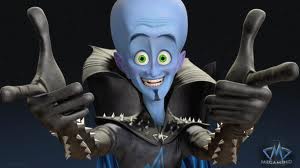“You’ll get a taste for one story and then want another, and then another, and the stories will build until you’ve lived a kind of epic of risk and reward, and the whole thing will be molding you into the actual character whose roles you’ve been playing. And once you live a good story, you get a taste for a kind of meaning in life, and you can’t go back to being normal; you can’t go back to meaningless scenes stitched together by the forgettable thread of wasted time. The more practice stories I lived, the more I wanted an epic to climb inside of and see through until its end.” (p. 155). What makes a fair story a great story is when the ambition of the character runs into difficulties and suffering is required to achieve the desired end. The more difficult the end is to attain, the better the story. Think, Hoosiers, for a movie example.
Miller has another interesting thought, namely that perhaps the beauty in this world, the grandeur of the mountains, the glory of a pretty sunset, is meant to inspire us to overcome our fears and undertake greater stories, loftier aims.
He then suggests that the main way we learn stories is not from movies or books, but from the company we keep. You become like the persons with whom you daily interact. This must be a disturbing process for prison guards. What is true is that we become the stories we choose to live out. We may begin by playing a role, but pretty soon we are living out the character of the role we’ve chosen to play in our stories (p. 167). Remember, a good story is about someone with ambition who embraces conflict or difficulty in order to attain the goal.
I agree with Miller that much of life is about the person you are molded into on the way to the goal. It’s about character transformation, and not settling for less than the best person you can become. I disagree with the notion that the story is not also about how it ends. Rather both things are true. In other words, I don’t agree with the story guru Robert McKee that its all about character arc. No, its also about the arc of the story. If you want to see character arc without an adequate ending to the story, watch the last few episodes of LOST! again.
Miller realized along the way of writing this book that overcoming conflict is what produces joy and satisfaction. The reason you ‘can’t get no satisfaction’ is because you have sought the life of the Big Lebowski, the Dude. And so it dawns on Miller that “our stories are being stolen by the easy life.” (p. 186). Exactly. You can still be a low life even if you are living the Miller High Life. But you can’t be a low life if you are living into a story which begins with ‘if anyone would come after me, they must deny themselves, take up their crosses and follow me.” Miller concludes from his reading of the profound reflections of Victor Franckl that there is no conflict a person can endure that cannot produce a blessing, often quite against all expectations. (p. 188).
Don, unfortunately also had a story of love lost. He is right that it is not true that another mere mortal can rescue us from ourselves, though an awful lot of people seem to think that if they find the love of their lives, they indeed will be saved, healed, rescued etc. “I now believe this is a lie that ends many marriages” in disillusionment. (p. 190). People have bought the romantic fantasy of finding ‘the one’ and turned it into a gigantic myth. But as Don himself discovered when his fiancee and he broke up, only God can really change, really rescue us, really make the pain go away. When your relationship crashes and burns, you may be tempted to believe God is a sadist trying to teach you a lesson. This is a lie, and as Miller says “I know the power a lie has to shrink time into what seems the eternal end of things” (p. 194) which in turn makes you think that life is no longer worth living.
One of the things Don says he learned from reading Victor Frankl is that we need to realize that each of our individual stories is part of a larger story, and that means “I am a tree in a story about a forest, and it is arrogant of me to believe any differently. The story of the forest is better than the story of the tree.” (p. 198). Don also cautions that we shouldn’t look for happily ever after in this world, in this life. “I don’t believe an act of man will make things on earth perfect and I don’t believe God will intervene before I die, or for that matter before you die. I believe instead we will go on longing for a resolution…” (p. 201).
Having worshiped at the altar of romantic completion, a fantasy he went into counseling for, he learned not only that another person cannot complete you or your story. “I think that’s why so many couples fight, because they want their partners to validate them and affirm them, and if they don’t get that, they feel as though they are going to die. And so they lash out. But its a terrible thing to wake up and realize the person you just finished crucifying didn’t turn out to be Jesus” or at least ‘your own personal Jesus’. (pp. 204-05). Don hasn’t given up on the eschaton, or final redemption. He simply believes we can’t find that in human schemes, politics, self-help programs, romances, new jobs, and the like. In short he believes only Jesus can bring in the eschaton or utopia, and short of that we must get used to having less than that in this life. And furthermore, “when you stop expecting God to end all your [this worldly] troubles, you’d be surprised how much you like spending time with God.” (p. 206). Along the way,
Miller realized that intentionally changing one’s story also changes one’s moral compass. For example, when Don embraced the notion of a Mentoring Project which helped disadvantaged children have tutors, he discovered he was capable of being a better person— instead of being a couch potato he became a coach potato!
At the end of this book Don once again finds solace in the words of Victor Franckl, who in essence argues “Ask not what you can expect out of life. Ask what life expects out of you, and then do it.” It’s a different way of looking at one’s story. Out of left field. But after all, left field is still on the playing field. It’s still in the ballpark.


